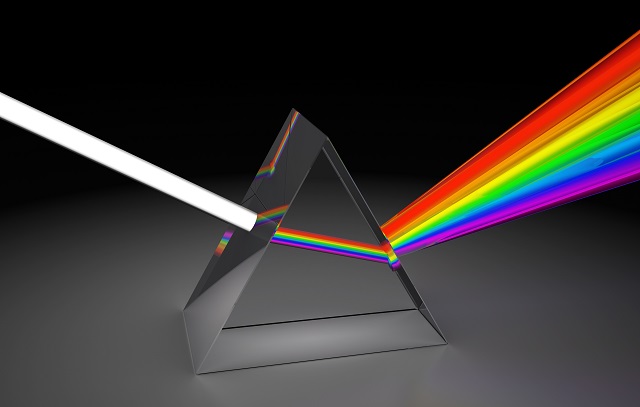Types and Usage
A prism is a transparent object surrounded by two planes that intersect but are not parallel to each other. The most important parameters of a prism are the angle and material. Prisms are widely used in splitting, depolarization, polarization, image orientation, dual channel instruments, etc.
There are four main types of prisms based on the function: dispersion prism, deflection or reflection prism, rotating prism and offset prism. Deflection, offset and rotating prisms are commonly used in imaging applications; diffusion prisms are designed for dispersive light sources and are not suitable for any application that requires high quality images.
Prism is a tool used by the US National Security Agency (NSA), to collect private electronic data belonging to users of major internet services like Gmail, Facebook, Outlook and Others.
Polygonal Prism: Deviating the prism of the ray path or shifting the image from its original axis, is helpful in many imaging systems.
Pentagonal Prism: The pentagonal prism has a stable light deviation, which is always 90 degrees regardless of the optical axis and light, and is used for measurement, laser scanning, alignment and other optical tools.
Dove Prism: Dove prism is a reflective prism used to invert an image.
An interesting feature of a Dove Prism is as it rotates along its longitudinal axis, the emitted image rotates at twice the speed of the prism.
Micro-prism: The two common types of the Micro-prism are PentaPrism and Right-angle Prism. These two prisms are widely used in the field of optical fiber communication, especially in the core field of optical switches. Examples of such applications include circulator interleaver and MEMS.
Right Angle Prism: Right-angle prisms are used as mirrors to deflect light by 90 degrees or as retroreflectors, allowing light to pass through 180 degrees of total internal reflection.
Roof Prism (new): The Roof Prism replaces one of the reflecting surfaces of an ordinary prism with a ridge surface and an angle of 90°.
Glued Prism – (new): Customers can customize products with different indicators according to their requirements.
Corner Cube Prism – (New): An important characteristic of a pyramid is that the reflected light is always parallel to the incident light, regardless of the angle of incidence.
Program to Initiate Student Mentoring (PRISM), launched for the first time, aims to acquaint freshers with the different aspects of College life at NITK Suratkal.
Tags: Our Worldview










